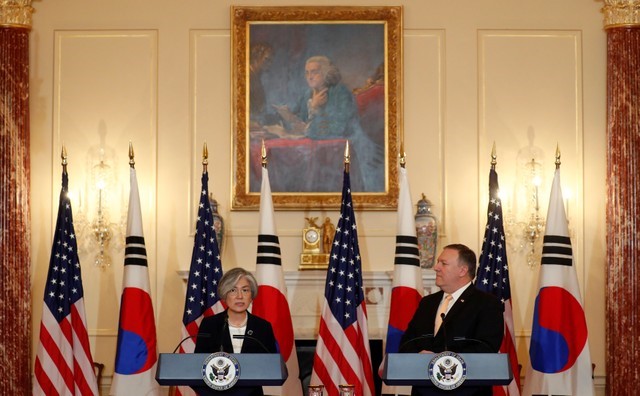
The Trump administration’s plan to lower drug prices didn’t appear as damaging as some had feared — at least the ones they’re pushing now. The bigger threats could come later.
President Donald Trump unveiled his blueprint to lower drug prices, called “American Patients First,” in a highly anticipated speech on Friday. However, his actions weren’t as biting as his words suggested.
The proposal included few immediate actions the administration would take but none that would bring any massive reforms. Wall Street welcomed the letdown, relieving health-care stocks of the pressure they had been feeling.
However, the clouds haven’t cleared yet, Evercore analysts Ross Muken and Michael Newshel said in a note to clients following Trump’s speech.
They pointed to future possibilities listed in the proposal that could hurt pharmacy benefit managers, or PBMs, which negotiate discounts with manufacturers. They included restricting the use of these rebates, revisiting whether statutes that currently allow the practice and considering fiduciary status for the firms. This designation would require companies to work on behalf of patients’ best interest.
“At this point it’s still a threat, and now the question is whether the administration follows through or not on actions that could pose bigger risks to the drug channel,” Muken and Newshel said.
In his speech, Trump railed against middlemen for becoming “very, very rich,” saying they “won’t be so rich anymore” and the administration is “very much eliminating them.”
In a press briefing following the speech, Health and Human Services Secretary Alex Azar said the administration is calling into question the entire system of rebates as the method of negotiating discounts in the pharmacy channel.
“Because right now, every incentive is for the drug company to have a very high list price and to negotiate list price down, often in a very nontransparent way,” Azar said.
The Pharmaceutical Care Management Association, which represents the PBM industry, said getting rid of rebates would leave patients and payers “at the mercy of drug manufacturer pricing strategies.”
“PBMs have long encouraged manufacturers to offer payers alternative ways to reduce net costs,” the group said in a statement. “Simply put, the easiest way to lower costs would be for drug companies to lower their prices.”

